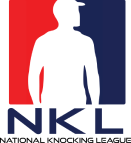Home security isn’t just popular—it’s booming as more families than ever continue to invest in protection, driven by increased safety concerns and the growth of smart home technology.
It will grow from $56.1 billion in 2024 to a projected $93 billion by 2030—fueled by rising demand for peace of mind and smart-home integration.
But selling home security isn’t like selling solar panels or home improvement services. You’re offering more than a product; you’re delivering trust, peace of mind, and protection for loved ones.
That’s why you need specialized home security sales tips—not just general advice. The goal of this article: hand security sales consultants an actionable playbook—scripts, demos, and mindset hacks—to crush quota ethically.
7 Effective Home Security Sales Tips
1. Build Trust Early
Kick off every interaction by establishing credibility and rapport—core principles emphasized in effective alarm sales training.
Start building it immediately:
- Clearly introduce yourself and your company.
- Mention recent installations in the neighborhood. People trust their neighbors more than any brochure or sales pitch.
- Step back physically after knocking on doors—respect their personal space to lower defenses.
2. Appointmentnstrate the System in Action
Seeing is believing, especially with home security.
- Show quick videos on your smartphone that illustrate real-life situations—like live alerts or nighttime camera footage.
- Let customers handle equipment (like sensors or brochures). It makes the demo interactive and creates subtle commitment.
- Match the demo to their concerns. Package theft? Highlight doorbell cameras. Fire safety? Focus on smoke alarms with instant response features.
3. Ask Needs-Based Questions
Stop pitching and start listening. Follow the simple SPIN structure to uncover what matters to the customer:
- Situation: “Have you experienced any issues with package theft recently?”
- Problem: “What’s your biggest worry when it comes to home safety?”
- Implication: “If a fire happened overnight and wasn’t detected immediately, how would that affect your family?”
- Need-Payoff: “Would instant alerts and quick emergency response help you sleep better at night?”
Boost Your Close Rate in 48 Hours
Ultimate Door-to-Door Sales Bootcamp

4. Create Urgency Without Fear-Mongering
Create urgency honestly and ethically by:
- Reminding prospects about practical facts like low police recovery rates on stolen property (only 1 % of stolen phones are recovered)
- Mentioning active neighborhood installations, e.g., “We’re already installing systems for several families nearby.”
- Highlighting logistical limits: “We have one installation slot left today—would you like to take it?”
5. Offer Multiple Package Options
Never force prospects into a one-size-fits-all choice:
- Provide clear options—Basic, Premium, Elite—to match different budgets.
- Always start by showing your premium or elite package first; it anchors perceived value.
- Outline clearly what each package includes, making it easy for them to pick what fits best.
6. Emphasize Lifestyle Benefits, Not Just Safety
Stop scaring, start inspiring:
- Highlight the convenience of smart-home integrations: “Check who’s at the door from your couch or even remotely from vacation.”
- Move conversations from fear (“Protect from intruders”) to comfort (“Enjoy your movie night knowing your home is secure”).
- Connect the system to daily routines and lifestyles, not just emergencies.
7. Handle Objections With Confidence
Objections aren’t rejections—they’re opportunities:
- Cost concern: Explain clearly how investing a small monthly fee can prevent significant losses from break-ins or fires.
- False alarms: Talk about advanced sensors that reduce false alerts, improving user experience.
- Privacy worries: Explain security layers that protect privacy, like perimeter sensors without indoor cameras.
Anticipate top objections—cost, false alarms, privacy—and be ready with brief, factually accurate and empathetic rebuttals.
For cost: “The average burglary in USA costs over $2,000 in losses; our system is a small monthly investment to prevent that.”
For false alarms: “Our AI-powered sensors reduce false alerts by 80 %.” Use the LAER framework (Listen, Acknowledge, Explore, Respond) to keep the dialogue constructive.
Sales Bootcamp for Home Security Reps
What Is a Home Security Sales Bootcamp?
Imagine a training camp designed specifically to fast-track your sales success:
- Hands-on practice knocking on doors and handling real objections (in safe, simulated environments).
- Role-playing sessions to perfect your pitch, qualify leads quickly, and handle tough questions with ease.
- Expert guidance from top performers, giving you actionable tips and confidence to close more deals.
The Bootcamp’s goal? Turn your new reps—and even seasoned pros—into highly skilled, confident closers who understand the nuances of selling security systems effectively.
Final Words
Selling home security is about more than tech specs—it’s about selling trust, peace of mind, and a better lifestyle. Implement these techniques consistently, invest in specialized training, and make every knock an opportunity to become your prospect’s trusted advisor.
FAQs
Q1: What’s the best way to sell home security systems?
Adopt a consultative approach: build trust, ask needs-based questions, demo solutions, present tiered packages, and close with ethical urgency.
Q2: How do I handle customers who think it’s too expensive?
Reframe cost as a loss-aversion play: contrast the system’s small monthly fee with the average $2,000 burglary loss. Offer financing to smooth cash flow.
Q3: Are door-to-door home security sales still effective?
Yes—hyper-local social proof and in-person demos still drive conversions. Door-to-door reps capture ~20 % higher close rates than online-only channels.
Q4: What tools help close more home security deals?
Use route-planning apps, mobile CRMs, AI call-analysis (e.g., Fireflies.ai), and dynamic demo presentations on tablets to boost efficiency and personalization.
Q5: How do I stay compliant in home security sales?
Always identify yourself clearly, respect local solicitation laws, provide written disclosures, and follow ethical standards—honesty and transparency build lasting brand trust.
Albert Brand boasts over a decade of expertise in the telecommunications industry, with a particular emphasis on fiber optics sales. His rich career spans both corporate roles and entrepreneurial ventures in sales fulfillment. With a proven track record in door-to-door sales, especially in the fiber optics domain, Albert has seamlessly bridged the gap between corporate leadership and hands-on sales, showcasing his versatility and commitment to excellence in this specialized field.























